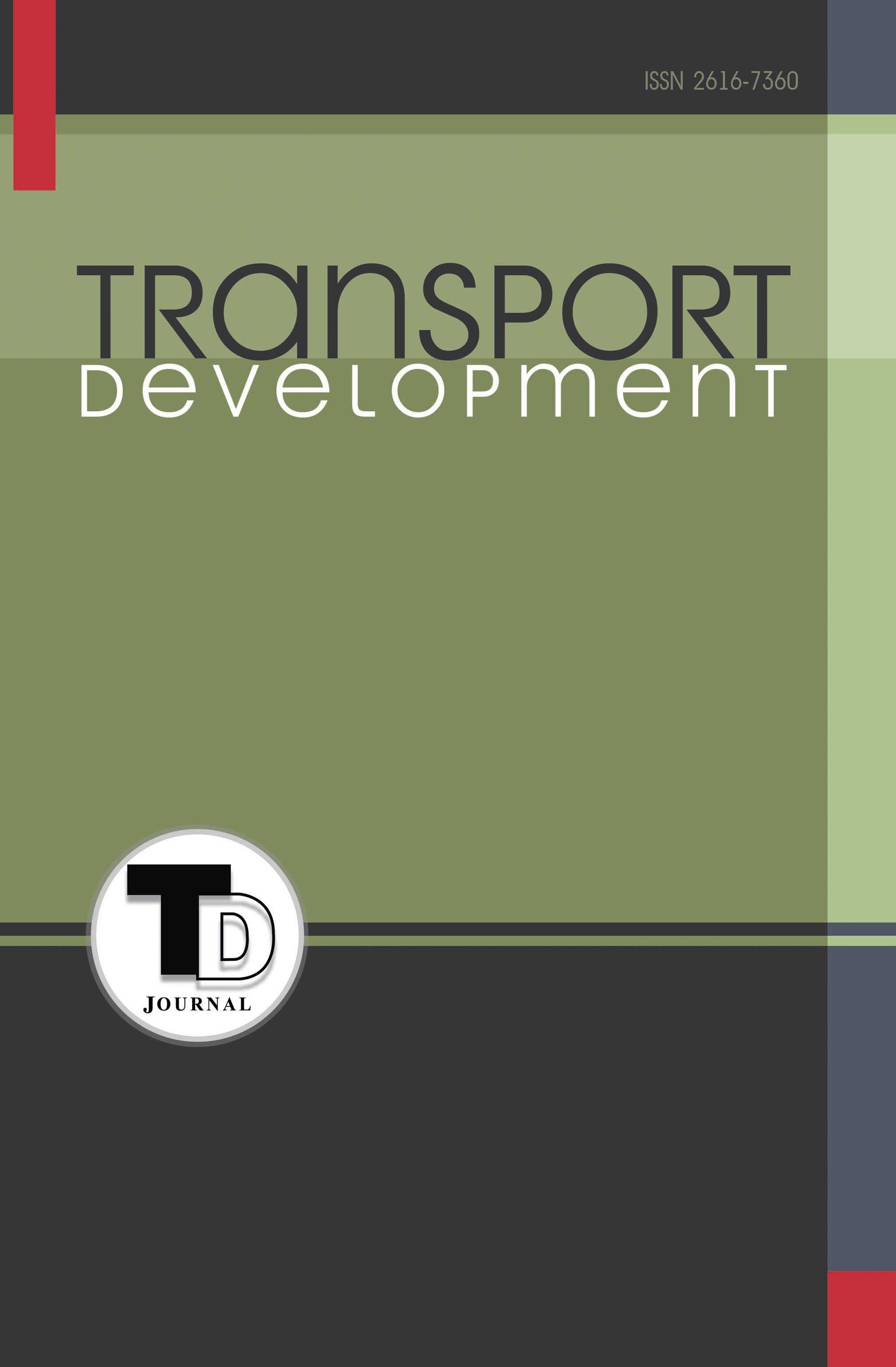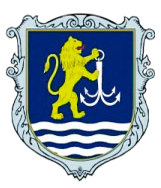FLEET OPTIMIZATION AND ITS DISTRIBUTION ON THE LINES UNDER CONTAINER FLOWS UNCERTAINTY
Abstract
Introduction. Planning the fleet composition, which corresponds to the goals and competitiveness of the carrier company, as well as modern trends in the container transportation market, is based on the study of container flows, taking into account their uncertainty. This forms the information basis for making decisions regarding the structure of the fleet and its operation. These decisions also involve considering the feasibility of operating liner services in general and assigning vessels to them, in particular. Results. A mathematical model for the strategic management level is proposed, where the period of time under consideration is a year or more. The fleet includes both own and timecharter vessels, so the model variables reflect the relevant conditions – which vessel or vessels operate on a certain line, both own and leased vessels. The target function of the model is the total profit from the operation of vessels, which takes into account, in addition to the profit from the operation of own and leased vessels on the lines, also the profit from own vessels that are proposed to be leased on time-charter, taking into account economic feasibility. The model limitations take into account: ensuring the volume of transportation in the range from pessimistic to optimistic levels between the ports of the lines; the permissible number of vessels leased on time-charter; ensuring a certain level of efficiency of each vessel on the lines. The optimization results provide the fleet composition and distribution of vessels on the lines. Conclusions. The proposed mathematical model for optimizing the fleet composition and its distribution on the lines is reliable, taking into account the compliance of the results with the input data and the adequate response of the results to changes in the input data. This model, as a development of existing models, does not contradict the results of previous studies that created an appropriate theoretical basis for the specified development, which also confirms its reliability. The optimization results form a basis for decision-making, allowing for “what-if” experiments with the level of freight rates, operational costs of vessels, work volumes, the cost of time charter, etc.
Downloads
References
2. Onyshchenko S., Savelieva I., Melnyk O., Koryakin K., Kotenko O. Enhancing Safety and Efficiency in Maritime Ergatic Systems Through Advanced Information Technologies. Systems, Decision and Control in Energy VII: Volume I: Energy Informatics and Transport. 2021. P. 295–308.
3. Onishchenko O., Golikov V., Melnyk O., Onyshchenko S., Obertiur K. Technical and operational measures to reduce greenhouse gas emissions and improve the environmental and energy efficiency of ships. Scientific Journal of Silesian University of Technology. Series Transport. 2022. Vol. 116. P. 223–235. DOI: 10.20858/sjsutst.2022.116.14.
4. Решетков Д. М., Онищенко С. П., Павлова Н. Л., Кириллова В. Ю. Сутність, переваги та проблеми автоматизації контейнерних терміналів морських портів. Вчені записки Таврійського національного університету імені В. І. Вернадського. Серія: Технічні науки. 2023. Том 34 (73). № 2. C. 194–202. DOI: 10.32782/2663-5941/2023.2.2/33.
5. Бондаренко Ю. А., Онищенко С. П. Структура та невизначеність контейнеропотоків у системі морських перевезень. Вчені записки Таврійського національного університету імені В. І. Вернадського. Серія: Технічні науки. 2024. Том 35 (74). № 1. С. 139–146. DOI: 10.32782/2663-5941/2024.1.2/23.
6. Koskina, Y., Onyshenko, S., Drozhzhyn, O., Melnyk, O. Efficiency of tramp fleet operating under the contracts of affreightment. Scientific Journal of Silesian University of Technology. Series Transport. 2023. Vol. 120. P. 137–149. ISSN: 0209-3324. DOI: 10.20858/sjsutst.2023.120.9.
7. Вишневський Д. О. Методичні основи організації роботи універсальних суден на міжнародних лініях : дис. канд. : 05.22.01. Одеса, 2016. 171 с.
8. Drozhzhyn O., Koskina Y. The model of container feeder line organization focused on the nature and parameters of external container flows. Komunikácie. 2021. Vol. 23 (2). DOI: 10.26552/com.C.2021.2.A94-A102.
9. Vyshnevskyi D., Vyshnevska O., Onyshchenko S. Modeling of the distribution of the vessels’ time budget under long-term freight contracts within conditions of uncertainty. Development of Management and Entrepreneurship Methods on Transport. 2019. Vol. 69 (4). P. 15–25. DOI: 10.31375/2226-1915-2019-4-15-25.
10. Кириллова О. В. До питання обґрунтування розподілу контейнеропотоків між суднами, обслуговуючими магістрально-фідерної лінії. Науковий вісник Херсонської державної морської академії. 2014. № 2 (11). С. 55–68.
11. Christiansen M., Fagerholt K., Nygreen B., Ronen, D. Ship routing and scheduling in the new millennium. European Journal of Operational Research. 2013. Vol. 228 (3). P. 467–483.
12. La Scalia G., S. Mancini, L. Adelfio, A. Giallanza. Development of a Vessel Scheduling Optimization Model to improve Maritime Transport sustainability. Sustainable Futures. 2023. Vol. 6. 100123. DOI: 10.1016/j.sftr.2023.100123.
13. Meng Q., Wang S., Andersson H., Thun K. Containership Routing and Scheduling in Liner Shipping: Overview and Future Research Directions. Transportation Science. 2014. Vol. 48. P. 265–280. DOI: 10.1287/trsc.2013.046 1.
14. Henry S.M., Hoffman M.J., Waddell L.A., Muldoon F.M. Holistic fleet optimization incorporating system design considerations. Naval Research Logistics (NRL). 2023. Vol. 70 (7). P. 675–690.
15. Ksciuk J., Kuhlemann S., Tierney K., Koberstein A. Uncertainty in maritime ship routing and scheduling: A Literature review. European Journal of Operational Research. 2023. Vol. 308. Issue 2. P. 499–524. DOI: 10.1016/j.ejor.2022.08.006.
16. Legros B., Bouchery Y., Fransoo J. A. Time-Based Policy for Empty Container Management by Consignees. Production and Operations Management. 2019. Vol. 28. P. 1503–1527. DOI: 10.1111/poms.12996.
17. Chien-Chang Chou, Rong-Hua Gou, Chaur-Luh Tsai, Ming-Cheng Tsou, Chun-Pong Wong, Hui-Lin, Yu. Application of a mixed fuzzy decision making and optimization programming model to the empty container allocation. Applied Soft Computing. 2010. Vol. 10, Issue 4. P. 1071–1079. DOI: 10.1016/j.asoc.2010.05.008.

This work is licensed under a Creative Commons Attribution 4.0 International License.





